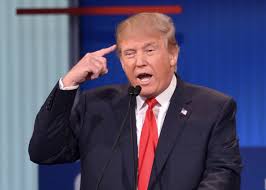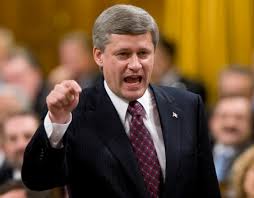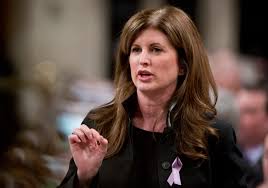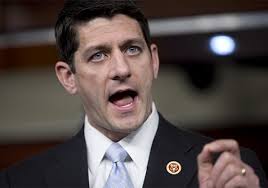www.theoxfordscientist.com
- First Duty
- ... the dry cough, a lethal hate crime
- ... open letter to Premier Danielle Smith
- Trump Guilty on all 34 Felony Counts
- shooting of PM of Slovakia
- YouTube channel, launch
- Carlson, tuckered out
- ... Chinese New Year - 2024
- ... orange jesus sprouts sixth finger
- ... Wagner Group in Africa
- ... conduct unbecoming an MP
- Alberta, burning
- ... the Trump legacy
- Eric LaMont Gregory
- Wacko in Waco
- Pence, Christian last
- ... Putin indicted
- The Egyptian Secret
- Fox fiction
- The Open Skies Treaty
- derailed in Ohio
- close your Twitter account
- ... espionage-a-lago
- Highland Park
- Canada bans handguns and assault rifles
- ... apology, only a first step
- ... world wide auto surf
- Conklin to Buffalo
- Danielle Smith and Liz Truss
- An End to War
- Globe & Mail, blatant sophistry
- conservative press, a fitting epitaph
- Uvalde, explanation time
- ... Ukraine, a crime against humanity
- Open Letter to Justin Trudeau
- Queen Elizabeth II
- Moscow Mitch
- ... illiberal roadshow descends on Edmonton
- ... don't cry for Kenney, Alberta
- ... Edmonton, on the world stage
- ... advertise in Chinese & English
- ... missing in Edmonton
- Human Rights
- Facebook, bankrupt ethically & financially
- Pelosi rejects Jordan
- ... vaccine roulette
- ... a mask in time saves nine
- 9/11 + 17
- the Gregory military doctrine
- lying Rodgers, unsportsmanlike Brady, falter
- ... best free traffic list 2021
- 34% of Covid survivors - will not fully recover -
- Trump ... doing Putin's bidding
- Coronavirus, a perfect storm
- Biden/Harris, ... America, can breathe, again
- ... in the heat of the day
- 11 September 2021
- Donald J Trump - like father, like son
- Jim Jordan will resign, inevitably
- ... raise money for your group
- Paris - Sanguinary excess, again
- Mitch McConnell is no Alexander Hamilton
- What Trump knew 28 January 2020
- None Dare Call It Murder
- use of force, part 2
- Coronavirus, the second wave
- Click & Join 2021
- Coronavirus Pandemic, Part 2
- Coronavirus Pandemic
- Terror Returns to London Bridge
- use of force, part 1
- Ohio's trio of shame
- ... how to earn Bitcoin
- Kenney: Scheer nonsense, part 2
- the dark charisma of Donald Trump
- the three stooges
- Trump's base, 24% and dwindling
- Scheer Nonsense
- getting away with murder
- World Wide Auto Surf
- Beyond a reasonable doubt
- Mueller, Redactions & Twitter
- An All Alberta Solution
- Obama Attends Raptors Game
- Call for action on cannabis convictions
- John Bolton: beware the Trojan horse
- Mandel Clarifies MMR Stance
- People First - Dai for Whitemud mp4
- Notley, Mandel or Kenney
- Dai for Whitemud. Dai for Alberta
- To refine or not to refine
- Trump under subpoena
- Mandel vs Elections Alberta
- Individual 1 - Donald J Trump
- Is Mississippi Learning?
- Stand Back & Stand By
- Flynn Seeks Delay in Sentencing
- Roadmap to Trump's Impeachment
- Michael Cohen sentenced
- Trump Obstructing Justice
- Defense Secretary Resigns
- The Ultimate Vanishing Act
- Hate Crimes are Increasing
- Trump announces Military Doctrine
- The Meeting, Trump Tower, June 9 2016
- 13 Angry White Male Senators
- Mean SOBs, Ryan & Jordan
- Trumpgate, a review of the facts
- Treason by the Dozens
- Terror on London Bridge
- Anti-Trump Ryan as Speaker, doubtful
- Haiti - shameful Red Cross 40% admin costs
- Deadly Bastille Day in Nice
- Special Powers
- Brussels - revenge attack
- Gregory's forte
- America First
- Brexit triumphs in UK referendum
- Ali
- Guns, Obama, the NRA & the Cleric
- Gorsuch & Brown v Board of Education
- The Generosity of America
- To Protect and To Serve
- Where is Alma Del Real?
- The Islamic World - a primer for policy makers
- The Lists - The Missing and Unsolved Homicides
- Michiana Murders
- Clinton
- Kings, Emperors & John Boehner
- Donnelly - the constant campaigner
- Kevin McCarthy
- Alberta Party
- Selections from The Ultimate Vanishing Act
- Malaysian Airlines Flight 370
- Ukraine - the Putin Doctrine
- Twilight
- Principles
- Bridge-gate: a closer look at Christie's staff
- Mandela
- Liangjun Wang
- Rethinking Syria
- about Chechnya
- Rethinking the War on Terror
- Tepid waters
- Linkage Blindness
- None Dare Call it Treason
- Emancipation
- Power
- Newtown - a cry for help
- Quarantine
- 11 September
- Hidden Crimes, Hidden Victims
- Cry, My Beloved Country
- Cruel Winds of October
- Doctrine
- Fed Video
- Under Seige
- Labor Day
- Destiny of America
- McEwen
- Rampage
- Threats
- GSK
- McEwen
- Condoleezza's watch
- Danger
- B R I C S
- Israel
- Huckabee
- Evidence
- Ties that Bind
- Sarajevo / Rwanda
- Violence
- Baby Safety
- MLK
- Libya
- Franklin
- Principles
- Fox 45
- America Wins Nobel Peace Prize
- Celina
- Middletown
- Arms Race
- Egypt
- Dollar
- 3 July
- $6 Trillion
- Jefferson and Adams
- 4th
- Libya
- Fening
- Abe
- Housing for Haiti
- Palin on Haiti
- ' ... an innocent man'
- Oil in the Gulf
- ... a wider regional conflict
- the demise of General McChrystal
- ... and to the republic
- BP and the Precautionary Principle
- Making Sense of Fort Hood
- Air Quality
- Un largo crepúsculo Lucha
- Israel
- Policy
- Home
- Casa
- un tambor diferente
- The Oxford Years
- Defense
- The Secret Hold
- INS will cease to exist
- ABC Toledo
- the grapes of wrath
- H1N1 Fluenza
- Tantamount to Treason
- MKL 4th speech
- Trans Dip
- Trump Rescinds DACA
- Rethinkin Syria
- Oxfam, IRC and other NPR Darlings
- Top Nine Articles for March 2015
- The Ultimate Vanishing Act
- Where is Alma Del Real?
- Alma Del Real
- 11 September
- A Measure of Philanthropic Success
- Tantamount to Treason
- South Carolina
- Double Crossed by Double Standards
- Call for photo radar cash grab inquiry
- Remembrance Day 2015
- Trudeau victory portends
- Blair Speech to Congress 2003
- Justin Trudeau, Tony Blair & Marijuana
- Trump, Harper, Ambrose & Ryan
- Saudi Arabia vs Iran
- The Islamic World ... the basics
- 2020 Presidential Candidate Releases Book
- Mississauga house explosion
- Reset: Driving Black in America
- Giuliani, shut up, stop name calling & prepare to govern
- Stop the Madness in Aleppo & Mosul
- Drain The Swamp
- Unpresidented
- Trump & the CIA, the high priest of false security
- The Hour of Maximum Danger
- Quebec, Queens U, Charleston & Trump
- Paul Ryan, Steve King, Trumpcare & Babies
- Harvey wreaks havoc
- VPN, don't surf without it
- Anju Sharma, the right choice for Edmonton-Mill Woods
- Adlandpro
- Trump's Iranian ties
- Brianna Keilar CNN - the big lie
- ... best free manual surf list 2021
- the Gregory military doctrine
- theOxfordscientist.com now on Tik Tok
- Chopin
- in the Course of human events
- 37 countries ban felon Trump
- un Plat qui se Mange Froid
- Trump shot at rally by 20-year-old
Donald Trump & Stephen Harper
Rona Ambrose & Paul Ryan
While trying to find a proper saying, axiom, or maxim to begin this article, which concerns similarities between Conservatives in the US and Canada, the following Chinese Proverb seems appropriate:
"The person who says it cannot be done, should not interrupt the person doing it."
There is precious little that Donald Trump is now saying that Stephen Harper did not utter during those desperate days leading up to the October national election in Canada. Where, despite polling evidence to the contrary, several major Canadian newspapers and broadcasters, even on the eve of the election, continued to predict a positive outcome for Harper's Conservative Party.
Notwithstanding, the Liberal Party under Justin Trudeau scored an overwhelming victory, such that the term landslide is a proper and fitting description of the results of that election.
It is often said that Canadians spend a lot of time talking about the United States, and yet Americans spend very little time on matters Canadian.
It is important to understand that while the messages and political tactics of a Donald Trump and a Stephen Harper, and those of Rona Ambrose and Paul Ryan are identical, the difference lies in their audience.
For the most part, Canadians are not Americans, and Americans are not Canadians.
While Trump, like Harper, lambastes, Canadians get on with the task of welcoming and settling refugees.
Both Ambrose and Ryan have an opportunity as they assume leadership to project a vision, a statement of destiny for their respective nations and peoples. But each has chosen to revisit what they believe to be the source of their party’s past fortunes, employing the same old tiresome rhetoric and arguments that are out of touch with their constituents, and seem only appropriate for the sounds they make.
For Ryan, it was the go-no-where attempt to undo health reform in the US, and Ambrose’s leadership begins and ends with the majority party's electoral platform and talk tough mumbling about Canadian airstrikes against the evil ones.
One can only hope that Rona Ambrose will remember that – heavy is the head that wears the crown – and some semblance of a vision and leadership will follow.
Harper, blocked a full-scale investigation into less missing and less dead* Canadians, could not see that addiction to prescription drugs keeps pace with addiction to illicit ones, while at the same time maintaining that he was doing the best for all Canadians.
A situation not unlike the troubled current mayor of Chicago, who oversees a police force that guns down ethnic minorities in the streets, maintains extra-judicial interrogation and detention centers, and who recently paid out hundred's of millions of dollars in compensation, because for 30 years officers of the Chicago police department had tortured and forced innocent ethnic Americans to confess to crimes they did not commit, some of whom were executed for those crimes.
And, he wants those same ethnic Americans to stop protesting and allow him to remain in office.
Canadians sent Harper home, and if things remain as they are, judging from the Conservative Party’s conduct in Common’s debates, Rona Ambrose and a host of Harper obstructionist appointees are soon to follow.
Much will be made of a recent article in a UK tabloid press, which on the surface of it seems to support the illiberality speak for which Trump is made famous in an ethnocentric America, and Harper infamous in a forward-looking ethnically diverse Canada.
Beneath the surface lies a certain Australian tabloid newspaper mogul, who has made a fortune feeding the anxieties of the ultra-right, and where ever his tabloids have grown so has the ultra-right in those countries, Hungary is a prime example. Former presidential hopeful Romney in his mistake-less foreign tour was laid low by not being able to distinguish between the proper British press and its tabloid imitations.
Had that article appeared in anything other than a Murdoch-madness tabloid, Prime Minister Cameron would have immediately made a statement to the effect that - it is not the policy of the Metropolitan Police Forces in the United Kingdom and Northern Ireland to not police an area because a police officer might get hurt.
It was not, and he did not so respond.
* http://www.theoxfordscientist.com/the-lists---the-missing-and-unsolved-homicides.html
While trying to find a proper saying, axiom, or maxim to begin this article, which concerns similarities between Conservatives in the US and Canada, the following Chinese Proverb seems appropriate:
"The person who says it cannot be done, should not interrupt the person doing it."
There is precious little that Donald Trump is now saying that Stephen Harper did not utter during those desperate days leading up to the October national election in Canada. Where, despite polling evidence to the contrary, several major Canadian newspapers and broadcasters, even on the eve of the election, continued to predict a positive outcome for Harper's Conservative Party.
Notwithstanding, the Liberal Party under Justin Trudeau scored an overwhelming victory, such that the term landslide is a proper and fitting description of the results of that election.
It is often said that Canadians spend a lot of time talking about the United States, and yet Americans spend very little time on matters Canadian.
It is important to understand that while the messages and political tactics of a Donald Trump and a Stephen Harper, and those of Rona Ambrose and Paul Ryan are identical, the difference lies in their audience.
For the most part, Canadians are not Americans, and Americans are not Canadians.
While Trump, like Harper, lambastes, Canadians get on with the task of welcoming and settling refugees.
Both Ambrose and Ryan have an opportunity as they assume leadership to project a vision, a statement of destiny for their respective nations and peoples. But each has chosen to revisit what they believe to be the source of their party’s past fortunes, employing the same old tiresome rhetoric and arguments that are out of touch with their constituents, and seem only appropriate for the sounds they make.
For Ryan, it was the go-no-where attempt to undo health reform in the US, and Ambrose’s leadership begins and ends with the majority party's electoral platform and talk tough mumbling about Canadian airstrikes against the evil ones.
One can only hope that Rona Ambrose will remember that – heavy is the head that wears the crown – and some semblance of a vision and leadership will follow.
Harper, blocked a full-scale investigation into less missing and less dead* Canadians, could not see that addiction to prescription drugs keeps pace with addiction to illicit ones, while at the same time maintaining that he was doing the best for all Canadians.
A situation not unlike the troubled current mayor of Chicago, who oversees a police force that guns down ethnic minorities in the streets, maintains extra-judicial interrogation and detention centers, and who recently paid out hundred's of millions of dollars in compensation, because for 30 years officers of the Chicago police department had tortured and forced innocent ethnic Americans to confess to crimes they did not commit, some of whom were executed for those crimes.
And, he wants those same ethnic Americans to stop protesting and allow him to remain in office.
Canadians sent Harper home, and if things remain as they are, judging from the Conservative Party’s conduct in Common’s debates, Rona Ambrose and a host of Harper obstructionist appointees are soon to follow.
Much will be made of a recent article in a UK tabloid press, which on the surface of it seems to support the illiberality speak for which Trump is made famous in an ethnocentric America, and Harper infamous in a forward-looking ethnically diverse Canada.
Beneath the surface lies a certain Australian tabloid newspaper mogul, who has made a fortune feeding the anxieties of the ultra-right, and where ever his tabloids have grown so has the ultra-right in those countries, Hungary is a prime example. Former presidential hopeful Romney in his mistake-less foreign tour was laid low by not being able to distinguish between the proper British press and its tabloid imitations.
Had that article appeared in anything other than a Murdoch-madness tabloid, Prime Minister Cameron would have immediately made a statement to the effect that - it is not the policy of the Metropolitan Police Forces in the United Kingdom and Northern Ireland to not police an area because a police officer might get hurt.
It was not, and he did not so respond.
* http://www.theoxfordscientist.com/the-lists---the-missing-and-unsolved-homicides.html




